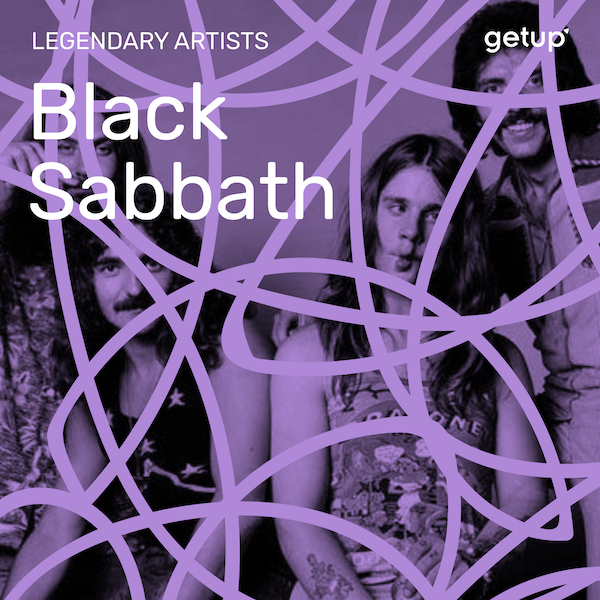There was Elvis, and then Link Wray, The Kinks, The Who, Deep Purple, and then Led Zeppelin... But in this competition for the “biggest-sound”, the world was not expecting the comet that was to fall on British rock on February 13, 1970 – a Friday the 13th, moreover: Black Sabbath, the first album from the band called Black Sabbath, whose opening track was titled “Black Sabbath”. Until then, no band had even dared to release such a dark, gloomy, and openly satanist album, much like the best horror movies. From the first few notes, the scene is set, with the sound of rain falling, lightning, church bells and finally the two-note riff that lands after exactly 38 seconds. Harmonically, everything is built around "the Devil’s interval", the Diabolus in musica supposedly forbidden under the Inquisition, and from then on this interval is to become an essential element for any self-respecting metal band. The ultra low and heavy tempo in their songs, highlighting the solemnity of each note, would give birth to a fully-fledged sub-genre, named “doom metal”.
The second album, Paranoid (September 1970), further hammered in and confirmed what the first release only gave a glimpse of: guitarist Tony Iommi is the supreme provider of heavy metal riffs in the whole universe, the rhythm section composed of Geezer Butler and Bill Ward (originally a jazz-enthusiast drummer) is an unstoppable force, and singer Ozzy Osbourne’s madness is clearly visible. This second album was the first of my listening experiences, and after twenty years of repeated play-it-again sessions, I ended up preferring the B-side’s long and complex tracks (“Electric Funeral”, “Hand Of Doom”) rather than the A-side’s hits, which nevertheless contain immortal riffs that are still shamelessly copied in all sub-genres of metal (“Paranoid”, “War Pigs”, “Iron Man”).
Master Of Reality (1971), their third album, is a lesser-known classic that celebrated the birth of stoner rock, a genre that would spawn Queens of the Stone Age as well as Sleep and Sunn O))).
There are, of course, factional squabbles: some swear only by the Ozzy albums, with a more vintage and bluesy sound, while others worship the more metal-sounding early ’80s Dio-era, smoother and more polite sound. On the other hand, only a few fans would fight to defend the albums featuring vocalists Ian Gillan, Glenn Hughes or Tony Martin, which are just more damp squibs that however have not tarnished the posterity of the group. Especially since Ozzy did eventually make his come back for a final album, 13, released in 2013. A record that competes well against the vintage classic releases.
Whether it be Megadeth, Metallica, Judas Priest, System Of A Down and other, more brutal sounding acts, not one of the major metal acts have missed out on the influence of Black Sab’, particularly by the band’s first three albums. As Pantera perfectly put it in “Goddamn Electric”: “Your trust is in whiskey and weed and Black Sabbath.”
Black Sabbath
Not one of the major metal acts have missed out on the influence of Black Sab’, particularly by the band’s first three albums.
Share






.jpg)

.jpg)